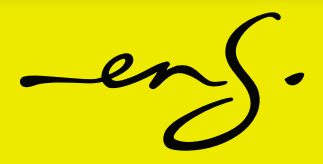The keenly anticipated draft IP Policy Phase 1 (2017) was published in September 2017 for public comment. It constitutes the first phase in the implementation of a comprehensive IP policy for South Africa. One of the key issues to be addressed is the interplay between the constitutional rights relating to property (of which intellectual property is recognised as a subset) and access to healthcare.
This update explores the provisions relating to access to medicines – specifically, those relating to compulsory licensing.
Section 56 of the Patents Act sets out the grounds under which an applicant can apply for a compulsory licence from the commissioner of patents regarding a patented invention where there has been an abuse of rights by the patentee. This section relates to the compulsory licence provisions provided for in the Doha Declaration, to which South Africa is a party, which allow member countries to interpret the Agreement on Trade-Related Aspects of Intellectual Property Rights in order to protect public health and promote access to medicines for all.
In particular, Section 56(c) provides that a compulsory licence can be applied for where the demand for the patented article in South Africa is not being met to an adequate extent and on reasonable terms. The South African courts have indicated that:
- 'adequate extent' means sufficient for the needs of South Africa; and
- a lack of 'reasonable terms' may be evidenced by public dissatisfaction with pricing, which may include a lack of access to affordable medicine.
Section 56(e) provides that a compulsory licence can be applied where the demand for the patented article in South Africa is being met by importation, but:
- the price charged in South Africa is excessive compared with that in the country of manufacture; and
- there is no justification for the substantially higher price.
This process requires a court application and thus incurs the concomitant delays and high costs of a High Court proceeding. As a result, few applications for compulsory licences have been brought before the Commissioner of Patents and no compulsory licences have been granted to date.
As regards compulsory licences, the draft IP Policy states that:
"South Africa's unique challenges, including especially vulnerable populations and urgent development concerns, will require the scope of compulsory licences to be strengthened and clarified in a manner that is fair and compliant in relation to both international obligations and national law. Following due process, guidelines will be introduced, including legal process for government use, and a renewed effort to facilitate the process of exporting IP goods, such as medicines, to the African continent."
It is possible that a simplified legal process will also be introduced – possibly through an amendment to the Patents Act – under which a compulsory licence application will be made to a tribunal or through another process that does not require a court application (at least in the first instance).
It remains to be seen how the final IP Policy will be put into effect.
For further information on this topic please contact Joanne van Harmelen at ENSafrica by telephone (+27 21 410 2500) or email ([email protected]). The ENSafrica website can be accessed at www.ensafrica.com.
This article was first published by the International Law Office, a premium online legal update service for major companies and law firms worldwide. Register for a free subscription



